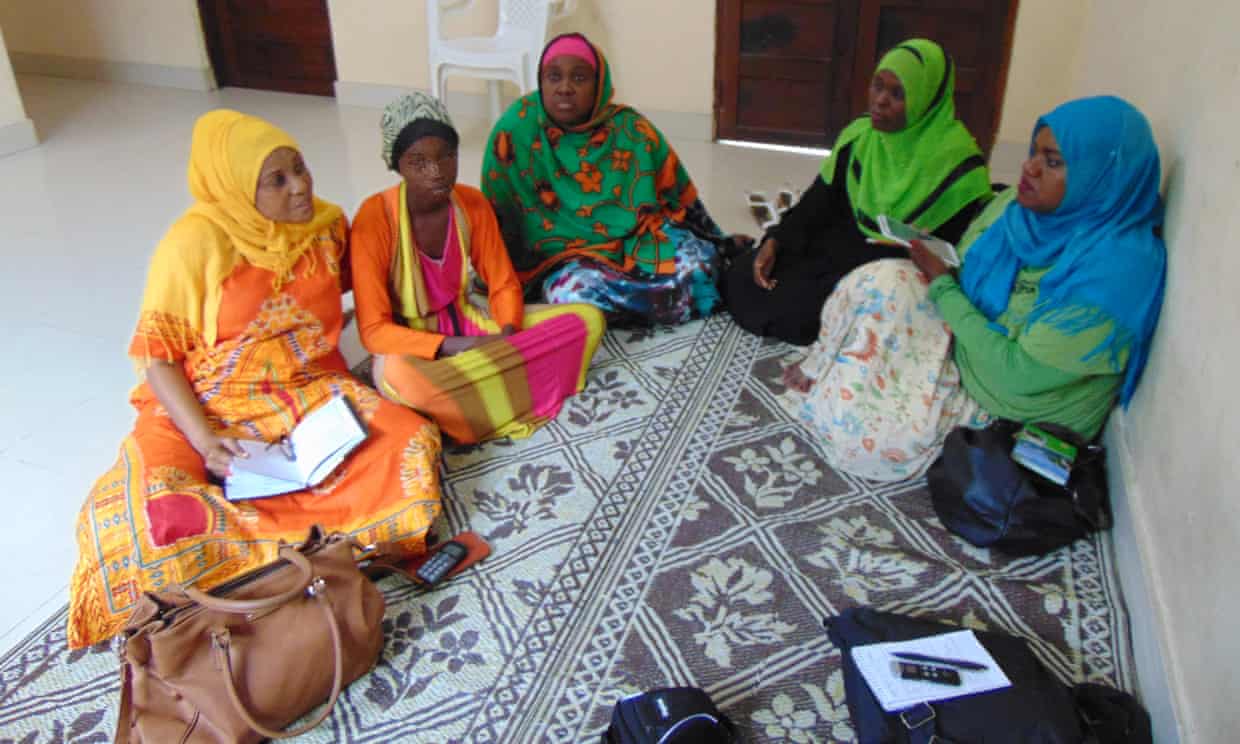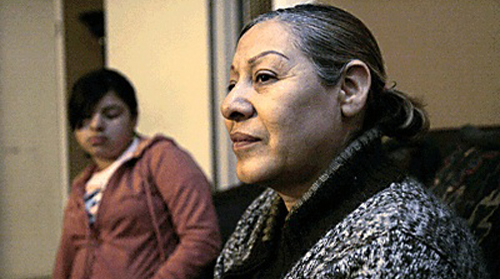
Girls and women in a Zanzibari shelter
With the promises of better lives and opportunities for their children, parents are being tricked into sending their children to become domestic servants for various wealthy employers in Zanzibar. Unfortunately, the promise of wages and educational opportunities for children do not come to fruition, and many child domestic workers endure long hours, no salaries or education as promised, and have to endure slave-like working conditions.
Children like Rose became the victim of the traffic of girls into domestic servitude. With the promise of economic and educational opportunities in Zanzibar City, Rose left home to work in a wealthy family’s home. There she was subject to long hours of work, physical abuse, and inhuman punishments for not completing a job. For example, Rose was locked in a fetid, tiny outdoor latrine for more than 11 hours. She had not finished washing the dishes the night before.
Such stories are common among the children being trafficked in Tanzania to become servants and domestic laborers. Based on reports of child labor in Tanzania, 131,741 children are pushed into domestic servitude; girls constituted the majority of domestic work with 84.2% (110,911) of the total child laborers. According to the Tanzania Mainland National Child Labour Survey,
the most common risk facts that the children face include “long and tiring working days; use of toxic chemicals; carrying heavy loads; handling dangerous items such as knives, axes and hot pans; insufficient and inadequate food and accommodation, and humiliating or degrading treatment including physical and verbal violence, and sexual abuse.”
Some few, more fortunate children more fortunate work for families that treat them well enough, but most face a lifetime of abuse and exploitation. Rose’s story illustrates the abuse that most trafficked girls experience as domestic workers. The morning of her first day of work, she was beaten mercilessly by her employers. After similar and worse punishments, such as imprisonment in a latrine, Rose finally escaped to a shelter for trafficking victims.
Likewise, Rachel, a domestic laborer at 14 years old, was forced to work for 16 hours a day, doing everything from cleaning to childcare. Her employer beat her often and raped her frequently. Finally, Rachel escaped and found a shelter.
Because of outside pressure, Tanzania has begun to take the cases of trafficked children seriously, investigating 100 suspected trafficking cases in 2016. Nevertheless, there has been no headway into the agencies that bring the children to their employers. There is no sense of how to stop the flow of children from mainland Tanzania to Zanzibar. Further, no proper organization has helped reunite survivors with their parents nor does any organization formally help trafficked child domestic laborers escape from their employers. In Zanzibar, there is one offering protection for these children, and it has only ten beds. Meanwhile, the warnings from Rose and others like her have not hindered other children from following in her footsteps. Many more children are at risk of falling into the same trap of the promise of a better life, only to be pushed into slavery.
(Photo Credit: The Guardian / Rebecca Grant)
